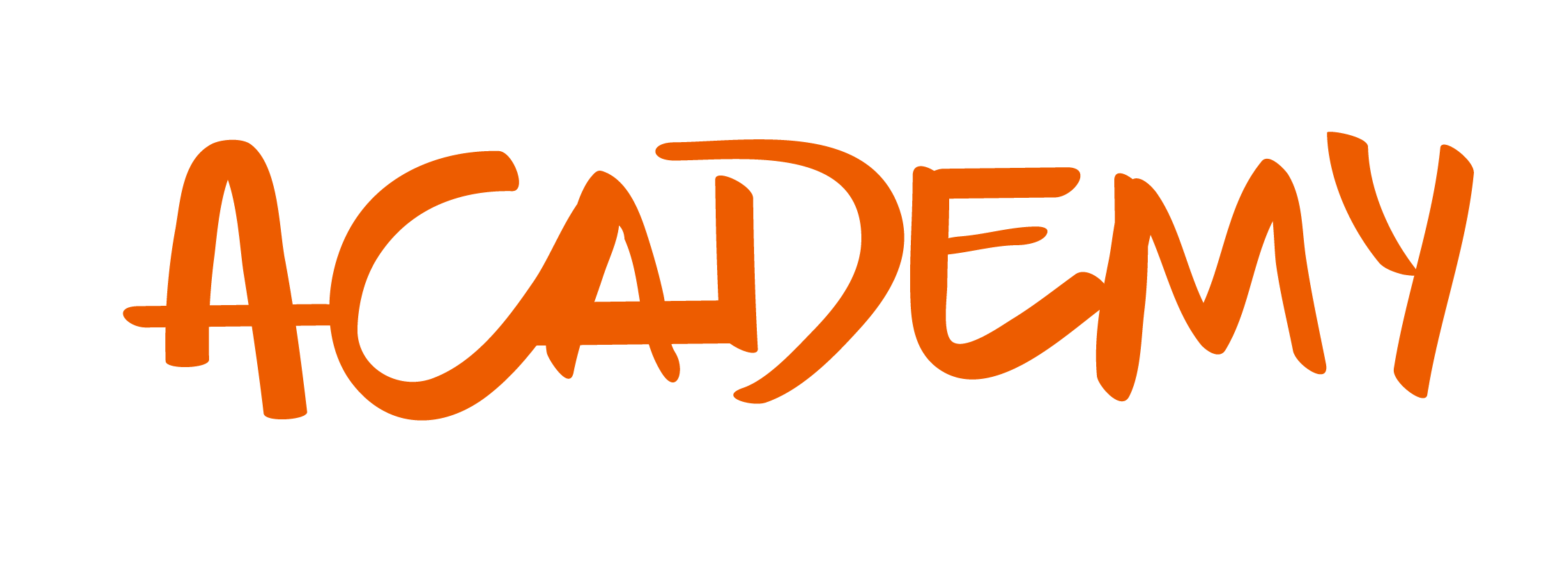Advertising has been seeing tremendous growth year over year, with revenue reaching new heights, particularly in the U.S. At the same time, creative teams are tasked with escalating responsibilities — which, without a solid project management model in place, can be problematic at best and chaotic at worst.
Project.co’s Project Management Statistics 2021 report, which evaluates how creative teams effectively manage their initiatives, shows some interesting trends across the industry. Among the findings:
- Ninety-two percent of respondents said they think collaboration with colleagues needs improvement.
- Ninety-five percent believe having task lists is beneficial to their mental health, while 96% say it makes them more productive.
- Ninety-four percent believe understanding what their team members are doing makes their business more efficient.
One thing is clear: project management is a key driver of success in an advertising agency.
How does the ad agency model work?
The functionality of a creative agency depends on an established mindset and process to ensure project progress and success.
Discovery and goal-setting
In the software industry, this is called the requirements gathering phase. But no matter what your industry — or what you call this phase — it’s a critical first step toward laying the groundwork for any initiative.
The agency will meet with the clients and other stakeholders to clarify any goals and objectives for the project. You will also assess the infrastructure you have in place to support the project.
Discovery involves identifying the problems that exist, as well as opportunities. It also involves managing client and stakeholder expectations, guiding them to set goals that are realistic and manageable but still ambitious.
Setting key performance indicators (KPIs) is also a critical part of this phase. KPIs are how you will measure and evaluate the success of the project.
Planning and budgeting
Once you have established your goals and KPIs, it’s time to enter the planning phase. This involves creating a budget for your project, taking into account the resources you will need to complete it successfully. You’ll also need to set deadlines and create benchmarks.
Consider, too, the profitability of the project. This will involve a profit and loss (P&L) analysis, weighing expenditures against anticipated gains.
Task distribution
The project manager is also tasked with, well, assigning tasks. They are usually the ones to build a team that will carry out the project. They will assess what the project needs and distribute the components accordingly, taking into account the talents and skills necessary to complete the job.
Development, design, and content creation
This is the meat and bones of project management: when you actually perform the bulk of the work. Still, it is important to remember that while this is an absolutely critical phase, it’s not the only one.
Here, the specialists responsible for their particular niches will develop, design, and ultimately create the product or service — whether that’s an advertising campaign, a brand new website, or a commercial.
This is not one and done. It’s a multi-step process, where the professionals involved work together, while governing their own sphere, and continue to gather feedback from the project manager, stakeholders, and clients.
Project monitoring
An advertising campaign, social media project, or initiative of any type requires close management and oversight. From start to finish, monitoring is necessary. It’s best for this to take place internally, so, when necessary, the project management team can act as a liaison, communicating with stakeholders about updates as needed.
Project launch
The launch of your project is probably the most exciting part of the entire advertising and marketing process. This only takes place after the team and clients are satisfied with the results and are ready to share their work with the public and the ultimate consumers.
Assessment and evaluation
The project launch is not the end of the project lifecycle in the marketing and advertising industry. Once you deploy your marketing campaign, you need to assess and reassess how everything went. Evaluate the critical metrics from your initiatives. What went well? What needs improvement for next time?
Fortunately, many marketing and advertising campaign platforms, as well as project management software, deliver results in real-time, allowing you to see the results of your performance, which will inform your work for the next time around — and the next and the next.
When should you implement project management in agencies?
As you might imagine, any new project with tight deadlines and critical due dates demands careful project management and oversight. But it’s not just necessary for these types of initiatives.
A marketing agency demands project management for a huge range of its initiatives. Whether you’re grappling with project timelines that need to be carried out quickly and efficiently or have numerous campaigns on your plate — with multiple teams involved — this is an important investment. Every project demands attention to detail, with an eye on deliverables.
If you’re questioning whether you need project management, the answer is probably yes.
Benefits of project management in advertising agencies
1. Greater oversight and project visibility
Project visibility is crucial. In order for you to understand where your initiative stands at a given point, you must exercise full control at a high level. This improves your processes overall, allowing you to lead more effectively.
2. Streamlined, more efficient processes
When you have a system that defines your processes and procedures, you’ll accomplish your tasks and responsibilities as an agency that much more efficiently. This will greatly simplify your organizational schema and allow you to improve productivity.
3. Better communication
Communication is the cornerstone of successful project management. Any creative project demands input and skillsets from a variety of team members, from web designers to SEO specialists to copywriters.
Fortunately, there are many excellent tools to help you facilitate stronger communication, even beyond project management software, from videoconferencing tools to chat platforms.
4. Improved collaboration
Project management also means better teamwork. The framework means carefully defined roles, with each team member knowing their responsibilities and how they will work with one another to accomplish their goals. They will know where to direct their questions, where to look for help, and so on. This means better outcomes overall.
5. Accessibility
When your plans and resources are spread out over departments and teams, it can be difficult to keep track of everything. Having a solid project management infrastructure in place allows you to make all your tools and materials accessible to everyone who need them, all in one place. This makes your processes more efficient, saving you time and improving productivity.
How to document your processes in your agency
Any organizational leader knows how important it is to carefully document your processes. A creative agency depends on continuous improvement, which is why documentation is especially critical.
In the past, you may have relied on spreadsheets and checklists to document your workflows. But project management software will help you facilitate better procedures — and, in turn, a superior project lifecycle.
Project management systems can aid you with tracking numerous processes, which, in turn, will allow you to better record and report on your procedures. Just a few examples are:
- Client and employee onboarding
- Hiring initiatives
- Budgeting
- Invoicing and billing
- Pricing
What does a project manager do in a marketing agency?
A project manager plays a pivotal role at an advertising and marketing agency. Whether they are freelance or full-time, they must be well integrated into your business flow and processes.
While their specific roles will vary from agency to agency, their major responsibilities tend to follow the below structure.
Planning
Any marketing campaign requires careful planning. During this phase, the project manager works closely with team members and stakeholders to map out all the various aspects of the project lifecycle. They will create task lists and assign responsibilities. They will select the project management tools they need to complete the job. And they will determine how to realize their goals for the initiative.
Ultimately, this means a greater likelihood of producing a better return on investment (ROI).
Budgeting
The project manager is also responsible for creating a budget, accounting for the needs of the project and the resources and personnel required. It’s crucial to determine how much money they need to complete their project successfully in order to meet the client’s expectations.
Scheduling
The organization is a necessary skill for any qualified project manager. And part of ensuring that the project is well organized from start to finish means scheduling. The project manager should establish a means of time tracking and determine when various tasks need to be completed, creating milestones and benchmarks to assess progress along the way.
Communicating
Project managers must be master communicators. They liaise with clients, stakeholders, account managers, and team members, anticipating and handling concerns, as well as sharing news and updates. Written and verbal communication, whether you’re messaging a leader or calling a new client, is crucial. And don’t forget that listening is important as well. You must be able to listen to everyone you’re working with, which will lead to better conflict resolution and stronger results.
Resource management
Some creative agencies have dedicated resource managers and professionals who are responsible for delegating materials and people to specific projects. But in other organizations, these tasks and duties fall to the project manager.
It’s important to know what you need to complete the project, including platforms, tools, and, of course, the people themselves. This is what resource management means — and why it is so critical.
Documentation
Documentation of your efforts is paramount to solidifying and perfecting your processes and efforts. Just some of the processes you should document are:
- Your task management strategy
- Your budgeting and accounting
- Costs and expenses
- Profits and losses
- Conversions, otherwise known as leads that become customers or clients
- Consumer interactions
Ensure you keep detailed records of every procedure, every meeting with clients and stakeholders, every plan, and anything else that is pertinent to your agency and its projects.
Evaluation
The project doesn’t end after your launch. You must continue to evaluate the efficacy of your efforts, tracking key metrics and determining how successful your marketing campaign was, using your KPIs as a tool to measure them.
3 different project management styles
You may have heard of the different approaches to and methodologies for project management. Some common ones are Agile, Kanban, Lean, PRINCE2, Scrum, Six Sigma, Strategic, and Waterfall. Most of them have a basis in software development, but they are also frequently applied to an advertising and marketing environment, too.
Each project management style has its merits and detractors. The approach you choose depends on your goals, the nature of the specific project, the size of your team, and other factors.
It’s best to follow the same approach for all or the majority of your projects. This will allow your team members to get used to the process and work together more productively and efficiently, as well as better understand expectations.
There are many project management styles to choose from. Below are three of the most popular in advertising.
1. Agile
Agile has quickly become one of the most widely-used project management methodologies, transcending the boundaries of software development, where it was first created. It’s also ideal for marketing and advertising.
Agile is based on the idea of continuous improvement. It also depends on strong collaboration and gathering feedback. That means fewer problems and errors down the line.
2. Waterfall
The waterfall is an older approach to project management. In contrast to Agile, projects are divided into steps, which are completed in a sequence. It’s ideal for marketing projects that have definitive stages, where no one process can be tackled until the previous one is finished.
3. Hybrid
Hybrid isn’t a methodology, per se — instead, it combines two or more approaches to create a wholly new process for project management. Creative teams may find that no one project management style suits their unique needs, so they can bring aspects of multiple styles into their fold and develop an approach that works for them.
One potential downside to using a hybrid approach is that it may be confusing for your team, especially if they are used to following another style. Make sure you carefully define the parameters of your approach and layout the different facets and intricacies of it so everyone is on the same page.
Automating your processes
Marketing teams have a lot on their plates. Fortunately, when they bring automation into the process, they can become more efficient and productive. Many project management tools will help you automate important processes, enabling you to streamline your most tedious operations. Many platforms have associated integrations, so you can incorporate the tools you need and ensure your technologies work together seamlessly.
Even templates, although not automation precisely, can save you time, energy, and costs.
How can COR help you automate your projects?
Agency project management is a delicate process and one that can be quite time-consuming. COR can take many of those tedious tasks off of your plate. When you’re equipped with project management software that streamlines your processes, this will also allow you to cut costs and reduce the time spent on your campaigns.
Our tools come with features like dashboards and business intelligence insights, enabling you to track analytics and evaluate your projects, too. From resource management to time tracking, you’ll have one of your critical project management processes and information in one place — and your work will be much more manageable.















